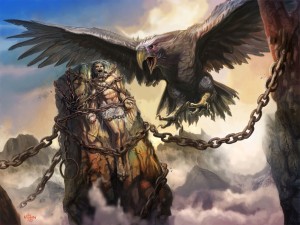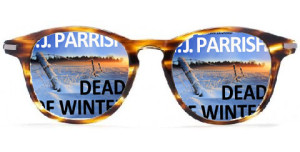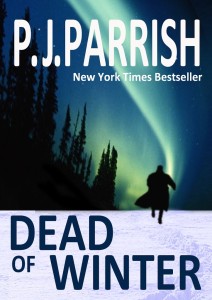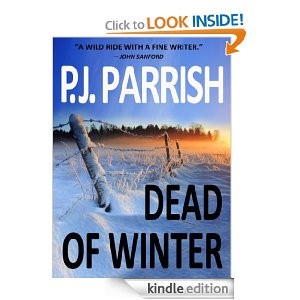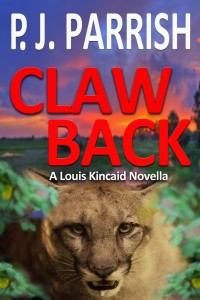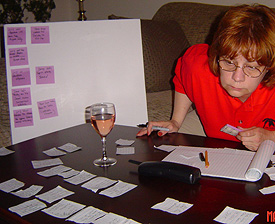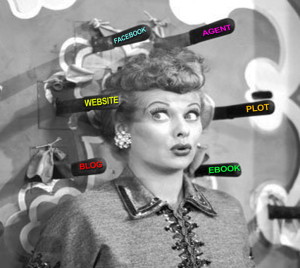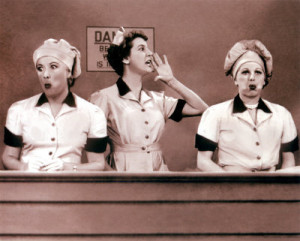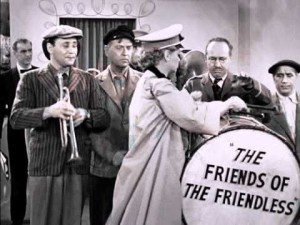Category Archives: ebooks
Predicting the future
By Joe Moore
@JoeMoore_writer
In a recent article in THE TELEGRAPH, the founder of the famous Waterstone’s London book store, Tim Waterstone, stated that the “printed word is far from dead” and  the “so-called e-book revolution will soon go into decline.” He joked that insiders were generally “apocalyptic” about the book industry’s prospects but said he refused to believe the traditional physical book was under threat.
the “so-called e-book revolution will soon go into decline.” He joked that insiders were generally “apocalyptic” about the book industry’s prospects but said he refused to believe the traditional physical book was under threat.
I tend to agree with Mr. Waterstone in as much as most bookstores I visit are packed with books and people buying them. I know it’s a simplistic measure of current trends, but when I start seeing large sections of empty shelves in book stores, I may change my viewpoint.
I disagree with him about e-books. So does Gaby Wood, who also wrote an article on the subject in THE TELEGRAPH. She states that “Booksellers are the group most threatened by the possible death of the printed book, and they have a reason to think wishfully of the digital book’s demise.” She also said that publishers have got to stop thinking of their digital products as “books”, and start imagining more expansive ways of communicating information. Until then, the digital revolution hasn’t even begun.
I think Gaby Wood has it right—this whole electronic publishing wave has just gotten started. The possibilities for industries like publishing, education and entertainment are endless. To say that e-books will soon go into decline is a prediction that may become laughable in the future.
To put this prediction business into perspective, let me share with you some famous visionaries of the past whose predictions carried a great deal of weight when first put forth, but didn’t stand up to the test of time. Enjoy.
"This ‘telephone’ has too many shortcomings to be seriously considered as a
means of communication. The device is inherently of no value to us."
— Western Union internal memo, 1876
"Computers in the future may weigh no more than 1.5 tons."
— Popular Mechanics, forecasting the relentless march of science, 1949
"I think there is a world market for maybe five computers."
— Thomas Watson, chairman of IBM, 1943
"640K ought to be enough for anybody."
— Bill Gates, 1981
"I have traveled the length and breadth of this country and talked with the
best people, and I can assure you that data processing is a fad that won’t
last out the year."
— The editor in charge of business books for Prentice Hall, 1957
"But what… is it good for?"
— Engineer at the Advanced Computing Systems Division of IBM, 1968, commenting on the microchip
"There is no reason anyone would want a computer in their home."
— Ken Olson, president, chairman and founder of Digital Equipment Corp., 1977
"The wireless music box has no imaginable commercial value. Who would pay
for a message sent to nobody in particular?"
— David Sarnoff’s associates in response to his urgings for investment in the radio in the 1920s
"The concept is interesting and well-formed, but in order to earn better than a ‘C,’ the idea must be feasible."
— A Yale University management professor in response to Fred Smith’s paper proposing reliable overnight delivery service. Smith went on to found Federal Express Corp.
"Who the hell wants to hear actors talk?"
— H.M. Warner, Warner Brothers, 1927
"I’m just glad it’ll be Clark Gable who’s falling on his face and not Gary Cooper."
— Gary Cooper on his decision not to take the leading role in "Gone With The Wind"
"We don’t like their sound, and guitar music is on the way out."
— Decca Recording Co. rejecting the Beatles, 1962
"Heavier-than-air flying machines are impossible."
— Lord Kelvin, president, Royal Society, 1895
"So we went to Atari and said, ‘Hey, we’ve got this amazing thing, even built with some of your parts, and what do you think about funding us? Or we’ll give it to you. We just want to do it. Pay our salary, we’ll come
work for you.’ And they said, ‘No.’ So then we went to Hewlett-Packard, and they said, ‘Hey, we don’t need you. You haven’t got through college yet.’"
— Apple Computer Inc. founder Steve Jobs on attempts to get Atari and H-P interested in his and Steve Wozniak’s personal computer
"Professor Goddard does not know the relation between action and reaction and the need to have something better than a vacuum against which to react. He seems to lack the basic knowledge ladled out daily in high schools."
— 1921 New York Times editorial about Robert Goddard’s revolutionary rocket work. NASA’s Goddard Space Flight Center is named after Professor Gaddard.
"Drill for oil? You mean drill into the ground to try and find oil? You’re crazy."
— Drillers who Edwin L. Drake tried to enlist to his project to drill for oil in 1859. Drake was the first man credited to drill for oil in the United States
"Airplanes are interesting toys but of no military value."
— Marechal Ferdinand Foch, Professor of Strategy, Ecole Superieure de Guerre
"Louis Pasteur’s theory of germs is ridiculous fiction."
— Pierre Pachet, Professor of Physiology at Toulouse, 1872
"Everything that can be invented has been invented."
— Charles H. Duell, Commissioner, U.S. Office of Patents, 1899
How about you? Any predictions on the fate of the printed book and the electronic book revolution?
Getting pecked to death:Are critique groups worth it?
I recently joined a critique group. Those who know me might think that’s weird. I’ve been published professionally for more than 20 years. I’ve done my share of teaching and should know how to do this by now. And I have a built-in critique group with my co-author sister Kelly.
So why do I need the tsouris?
Three reasons really. First, just because you’ve written some books doesn’t mean it gets any easier. Second, I now have a second home in the suburbs of the ebook Wild West and you need all the neighbors you can find out here among the wolves and cacti. And third…I’m lonely.
We’ll get back to that last one in a second.
But let’s ask the main question here: Are critique groups worth it? Worth it in time, energy and the bruising your ego will surely take? Should you expose your hatching to the cruel world to be pecked at before it’s barely had the chance to sprout feathers let alone wings? (Whew, labored metaphor alert there).
I used to think critique groups were a waste of time. Maybe that’s because early in my writing life I got involved in one that was really bad. We met at a local bar once a month. (first mistake: combining wine and whine). The members weren’t very good at articulating what was wrong (or even right) in stories and a one guy was really defensive about being rejected by the “Manhattan cabal.” That’s what he actually called New York publishers. I left the group after two sessions, figuring it was cheaper to get depressed at home with a bottle of pinot.
But I think writers are better these days at taking constructive criticism. Maybe it’s because the new world of self-publishing has stripped us of the delusions we might have about how easy it is to write (and sell) a book. Maybe it’s because in these days of change and turmoil, good editors (even those in the Manhattan cabal) are worth their weight in gold. Whatever the forces at work, I think we’re seeing a shift among writers, a new willingness to get help and get better.
So I’ve come to believe that a critique group can be one of the best tools a developing writer can use. Even experienced writers can benefit from them. But there’s a bunch of caveats that go with this. And I’ll get to those in a second too.
First, let me tell you about my little group. There’s four of us and I was the last to join about two months ago after one of the group, Christine Kling, literally sailed off into the sunset. (She’s an avid sailor and decided to pull up anchor and cruise the Caribbean, though she’s back now). That left Sharon Potts, Neil Plakcy, Chris Jackson…and me, the new cucumber.
We meet every two weeks at a Starbucks but in the week prior we send each other our 10 pages. We each then read and “red pencil” our comments on the pages. We use Word’s TRACK CHANGES function. It’s an editing program that lets you insert comments on a document. Track Changes is a little hinky to learn at first but it’s a cool tool. And most editors in publishing are now using it for their author revisions and expect you to know it as well.
Why just 10 pages at a time? Well, too much makes you skim over surfaces. You can really focus down on a book’s problems if you take it in small bites.
What things? We try not to nitpick and line-edit. That’s for second and third drafts and hopefully copy editors. What we try to help each other with is the Big Picture. Where the plot is going into the ditch, where the character development is lacking, and what — and this is important — to the cold eye seems confusing. But we try to stay flexible. We made an exception to our 10-page rule last week for one of our members. She is struggling with a very complex thriller. Her plot had become a hyrdra-beast and she wanted help simplifiying it. So she gave us a concept and we went from there.
At Starbucks, we pick one author to critique and we take turns going over our Track Change comments (we bring printed-out copies to give to each writer). We also encourage the other critiquers to jump into the conversation if they want to add something to the point at hand. These sessions run about four hours, three lattes and at least one pee break.
Have they helped me? Immensely. I am working on a new Louis Kincaid series book and after I offered up my opening chapter, I was told the tone was completely at odds with where I had left my hero in the previous book. That was a major revelation that has made me rethink my first six chapters. I also came to realize I’ve lapsed into a lazy habit of underwriting. My critique mates want a little more description and detail from me. (Ironically, my sister tells me the same thing). I also learned my treatment of my series backstory (always a tricky thing) was deficient. I was mentioning characters and situations from previous books that weren’t explained enough in the present one to stave off confusion.
What’s really good about getting this kind of feedback is not that they are trying to tell me how to write my book. It’s that this will save me valuable time. In rewrites, of course, but also later when I am deeper into the plot. It’s like hiking through a forest. Alone, I might have gotten far into those dark woods, realized I had lost my way back on that first turn, and now I have to backtrack to find my way out. Without falling off the ridge.
My hiking mates aren’t telling me where to go. They’re just keeping me on the path I have already chosen.
So, is a critique group for you? I can’t answer that, of course. But I can pose some questions for you:
1. What kind of group do you need? Ideally, face-to-face. If you can stay within your genre, also good but not essential. Good writing is the same whatever the genre. But I’d stay with fiction. Non-fiction folks have their own unique needs.
2. Where are you in your skill level? You need to find like-minded writers but it’s always better if you can link up with some folks who’ve been published. As the saying goes, you want to play tennis with someone better than you or you never improve your game. But be willing to take the heat. If the group seems like a mere pity-party — ie, everyone bitching about their lack of success — get out as soon as you can. It’s cathartic to exchange tales of woe but it should be limited to small-talk after the hard work is done.
3. Where can you find a critique group? If you’re isolated geographically, there are online groups but it’s pretty gnarly out there, almost like cyber-dating. (There’s one group, Ladies Who Critique, that’s females-only). Start here for a list. The best way, I think, is through writers organizations. I found my group via contacts I made through my Mystery Writers of America Florida chapter. If the organization doesn’t offer critiques, network and start one yourself. All you need is two or three other committed people. Here’s some good advice on starting your own.
I can also give you some advice on how to handle yourself if you do decide to join a group:
1. Make a commitment. You’ll get only as good as you give. If you join up, be willing to spend whatever time it takes helping the others with their WIPs. Nobody likes the guy who shows up at the party empty-handed, drinks all the good booze and sits in the corner with nothing to say.
2. Be tough but kind. The best editors I’ve had always know how to make revision letters sound like they are really praise letters. They always tell you what you did brilliantly before they smack you upside the head and tell you where you royally screwed up.
3. Don’t get defensive. We are all soft-shelled about our writing but if you can’t take constructive criticism, don’t join a group. Hell, don’t even try to be a real writer for that matter. At our last session, I got defensive about fried pickles. My hero Louis orders a basket of fried pickles. It was one throwaway line but one of my critique buddies wanted more about the pickles. (It’s hard to explain but she was right.) I spent five minutes trying to justify why I didn’t want to write more about those friggin pickles. Later, I realized it had nothing to do with pickles and everything do to with me being prickly.
4. Don’t ever say “Yeah, but…” This is a variation on No. 3. One of your critique mates says, “I can’t figure out what is going on in this scene where the guy is stealing the fried pickles.” And you say, “Yeah but if you just wait until chapter 26, it will all be explained.” If someone is confused by what you’ve written you should listen to them. Misdirection is a great writer’s tool. But it is not the same as confusion.
5. Don’t get depressed. Having folks tell you what is wrong with your story is not easy to hear. But a good critique group can be really inspiring. It can teach you that all writers struggle, that first drafts are never meant to be perfect, and that you can, despite what all the demons in your head are whispering, fix it. Yeah, you might feel like that guy in the picture at the beginning of this blog — that’s Prometheus, who Zeus tied to a rock and sent down an eagle to peck the guy’s liver to shreds. But you can also get a big dose of camaraderie through a good critique group.
And that brings me back to my last point — the thing I said about feeling lonely.
We all do, right? We sit here in our old yoga pants and Bob Seger t-shirts, poking away at our keyboards, hoping this STUFF we are storing away each day might actually coalese into a book and be read someday. We surf the internet, read articles about how to improve our craft and blogs about how to market them. But sometimes, as that great western philosopher Bruce Springsteen says, all we really need is some human touch.
We need to know we’re not alone. We need to hear other footsteps behind us on the path.
The ebook future’s so bright that I gotta wear shades
Brief background: The four geeky guys behind Warby Parker (the name is from two characters in a Jack Kerouac journal) were trying to figure out why designer glasses cost beaucoup bucks and discovered it’s because everyone in the process was taking a cut — designers, manufacturers, brands, wholesalers and retailers. So they eliminated the middlemen, lowered the prices and built their reputation and customer base via the internet.
Back to Warby Parker for a sec. They seem to be pretty inventive. On their site, you can upload a photo and do a virtual try-on. And they’ll send you five frames to try on at home free. Isn’t such agility also one of the hallmarks of good ebook authors today? Every author I know who is succeeding at ebooks is thinking outside the old marketing boxes. We are packaging our books in boxed sets. We’re offering short stories and novellas. We’re being flexible with pricing and even — gasp! — giving our products away. (It’s called sampling in business and it’s been a successful practice since the 19th century.) How many of you have tried to get your traditional publishers to do some of this? Maybe drop the price of your backlist ebooks to help catapult your new book? Show of hands for those who succeeded? That’s what I thought…
So what about that epiphany? Well, the more I thought about it, the more I realized that it’s not an epiphany so much as an affirmation of something I already knew in the back of my brain. I am new to the ebook self-pubbing business. I’ve only put one backlist title out there, Dead of Winter, and one novella, Claw Back. I know I have a ton to learn and some catching up to to do. (I mean, I can’t even figure out GoodReads, for corn’s sake).
What I have figured out is that I need to be a better business person. Yeah, I am a writer first and the creation of the story will always be paramount. And I want to keep a foot in traditional publishing because I still believe there is a place for actual books you can hold and actual bookstores you can visit. (even the Warby Parker guys figured this out — they opened a couple boutiques because they realized people still want to touch things before they buy them.).
But my real epiphany is this — that if I don’t pay attention to Parrish Inc. no one will. I have to get rid of any illusions I still might have about some nice big paternalistic publisher being there to always watch over me.
I may need glasses, but I’m not blind.
How to make it to the Big Show
“Do you know what the difference between hitting .250 and .300 is? That’s 25 hits…25 hits in 500 at bats is 50 points…okay? There’s 6 months in a season. That’s about 25 weeks, that means if you get just one extra flair a week, just one. A gork, you get a ground ball, you get a ground ball with eyes! You get a dying quail, just one more dying quail a week and you’re in Yankee Stadium.”
So this is the story of our great Kindle experiment. It’s only one writer’s limited experience. But it has totally reshaped my thinking about my career and my place as a business person within it. Maybe you’ll find it instructive. Or maybe it will inspire you to try something different than what you are now doing. Because I believe that in this fast-shifting landscape, we writers — nay, storytellers — are the only things that can’t be replaced. In fact, this new publishing machine is going to have to be rebuilt around us. We aren’t cogs anymore; we’re the engines.
But ebooks have changed everything. Now major authors are buying back their ebook rights; mid-listers are finding new life for their abandoned backlist titles; newbies like Colleen Hoover are breaking into bestsellerdom; and everyone is reading the small print in their old contracts.
Five years ago, you were a fool if you self-published. Now, you’re a fool if you don’t.
Another caveat: I was really apprehensive about doing this. I had to be talked into it by two writer friends.(Take a bow Christine Kling and Sharon Potts.). I didn’t think it would work. Boy, was I wrong.
Here’s the background: Kelly and I have published twelve books with two traditional New York publishers. Only our first two-book contract from 2001 has no mention of “electronic rights” so we decided to self-pub.
We chose our second book, “Dead of Winter” because it is far superior to our freshman effort. First rule of ebook self-publishing: DO NOT PUT OUT A “LESS-THAN” BOOK.
We decided to enroll it in Kindle Select. This means you can’t load it into any other reader formats like Nook and Kobo. Why did we do this? Because Kindle Select lets you give the book away if you want (More on that later) and the book is placed in the Kindle library, which means readers can borrow it instead of buying it. (More on that too)
Also, Kindle’s formatting is pretty easy to learn. Many authors pay others to do this but Kelly is tech-savvy and we mastered the learning curve quickly. Nook’s formatting program is a bitch. (More on that later).
Kelly designed our cover (below). You can’t legally use the original one your publisher created.
Then we wrote our “description.” This is like the back copy on your book and potential readers can click on it to find out what the book is about. It’s important that this be enticing; authors often go back and tweak this endlessly to get it right. Here is what we wrote:
Available for the first time in eBook! Read the thriller that launched the award-winning New York Times bestselling Louis Kincaid series.
In the quaint tourist town of Loon Lake, Mich., a killer is taking his vengeance. One by one, the bodies of cops are found, brutally executed, with mysteriously coded death cards placed with each corpse – the gruesome signature of a psychopath. And the only sound louder than doors being locked against evil is the sound of hearts beating in terrors. Louis Kincaid came north looking for refuge, a place to forget his past. But now he’s landed in the middle of an investigation that’s a terrifying journey through a town’s fiercely protected heart of darkness.
2001 Edgar Award Finalist
Praise for DEAD OF WINTER and PJ PARRISH
“Stylish blend of mystery, knife-edge tension and a complex hero readers care about.” – USAToday
“Tense, thrilling, and your manicurist’s best friend – you’re going to bite your nails.” – Lee Child
“Full of intrigue and edge-of-the-seat suspense.” – Michael Connelly
“The author’s ability to raise goose bumps puts her in the top rank of thriller writers.” – Publishers Weekly starred review
We priced it at $2.99, loaded it up, sat back and waited for the hordes to line up at our virtual door.
After 51 days, we had sold 128 copies. I’ll do the math for you: Even at Amazon’s 70% royalty rate, that means we made $267.90. Which means I made $133.95. (Remember, there’s two of us.)
Big whoop, huh?
We decided we didn’t like the way the cover looked in the Amazon store. It looked muddy and had no pop. (I wrote a KILL ZONE blog about bad ebook covers Jan 15; you can find it in KZ archives) We downloaded a new cover.
On day 52, we pulled the trigger on Amazon’s giveaway option. We gave our book away free for three days.
In the first forty-eight hours, we had 47,000 downloads. It shot to No. 1 in Amazon’s free bestseller store for all mysteries and thrillers.
After three days, we took it back to $2.99. In the first three days, it sold almost 3,000 copies. And here’s the gravy: It was “checked out” of the Amazon library almost 1,400 times. You get an extra royalty for that which averages $1.88 per download but has gone as high as $2.85 for us.
“Dead of Winter” rose to No. 15 on the PAID mystery/thriller bestseller list. It made it to No. 39 on the paid list for ALL Kindle books (that includes all fiction and non-fiction, classics, cookbooks and even the Bible). We — P.J. Parrish — suddenly appeared on Amazon’s Most Popular Author’s list. (I didn’t even know it existed).
We did no advertising. Nada. We announced it on Facebook and sent out a newsletter blast (But that goes to our fans who’ve already read it; we were trolling for new fish). The only thing we did was to take a day to contact blogger sites that are dedicated to giveaways. (There’s a whole cottage industry devoted to this. See Christine Kling’s FOR WRITERS website for advice on this. Nancy Cohen also listed some here at KZ in her February 13 post.)
The book continued to sell at the same fast rate through all of January and into February. Our borrows increased. Today, as I write this, the “glow” is over. (That’s what Christine calls that big sales bump after a giveaway). Sales are on a slow descent but even last week, the book sold an average of 112 books a day.
Other benefits I didn’t see coming: Our reviews for “Dead of Winter” went from 32 to 93, all from readers who said they had never read us before. The book was featured on dozens of blogs. And get this: We saw a bump in sales for our other ebooks (based on Amazon ranking). The ones put out by Pocket, priced at $7.99 moved up. But we saw a significant bump for the ebook that our other publisher priced at $4.08. That book, “An Unquiet Grave,” published 7 years ago, went from Amazon Siberia up to no. 7,057 and today is hanging on at No. 64 on the Private Eye Bestsellers list. Which illustrates, to me at least, the important of being able to price your ebooks right.
And I just found this out an hour ago: our new book HEART OF ICE (due out next week) has crept onto the bottom of the Amazon PI bestseller list at No. 97.
Now one word here about Nook et al.
While we were doing “Dead of Winter” we self-published CLAW BACK. Because it was an original novella, we wanted to make it available to all formats. We went to the Barnes & Noble author website to find out how to self-pub it. It was like trying to cut your way through a thicket with nail clippers. We bought the Scribners software to learn Nook formatting but were defeated by its intricacies. (You have to decide where your tech breaking point is).
We sent “Claw Back” to Smashwords, a formatting company. Smashwords also distributes your ebook to all the non-Kindle sites. A week went by and the book still wasn’t in the Nook store. We emailed; B&N said it was in the system. Two more weeks went by. Crickets. B&N just kept saying it would appear “soon.”
On Jan. 17, we pulled it and enrolled it in Kindle Select at $3.99. Sales were small. We dropped the price to $2.99 and it took off. Sales aren’t as great as “Dead of Winter” but they are steady. As I write this, “Claw Back” is No. 95 on the police procedural bestseller list. And we haven’t given it away yet because we want to time it as a “slingshot” prelude for our new book.
I’m not trying to bash B&N here. God knows I don’t want to see any bookstore die. But a report in Slate this week says that contrary to earlier reports, losses in the Nook division are going to grow this year rather than staying flat. They didn’t exactly make it easy for me as an author to reach my readers.
So what’s the take-away here?
I won’t turn my back on traditional publishing. I still want “tree” books in my readers hands, if that is the delivery method they prefer. But I want to reach as many readers as I can and I want to do in ways that are creative and flexible. So I will continue to self-publish.
Because you can hit a gork or a flair and make some good money. If you’re good and lucky you can even make enough to live on so you can write more. But maybe even more important, you get control. YOU decide when to put your book out there. YOU decide what the cover looks like. YOU decide what the price should be. And YOU decide exactly what direction your career is going to go.
Oh, there’s one more cool thing: You can actually make sense out of those Amazon royalty statements.
FREE on Kindle
Today is my first venture with the Kindle Select Program wherein a book goes free to the public.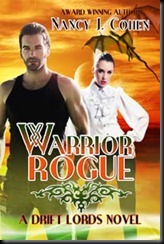
Wild Rose Press, who publishes my romance novels, decided to enter their new titles into this program before the official release date. I am really hoping this offer raises awareness of my series.
Before we proceed further, please go now and download your free copy. Share this link with everyone you know! Please “Like” the page while you are there.
Warrior Rogue (The Drift Lords Series) by Nancy J. Cohen is FREE on Kindle Feb. 13-17. http://www.amazon.com/Warrior-Rogue-Drift-Series-ebook/dp/B00AU62NQS/.
I’m also running a Valentine’s Day contest in conjunction with the free giveaway. Click on the Contest tab here: https://www.facebook.com/pages/Nancy-J-Cohen/112101588804907 and remember to Like the page while you are there.
What have I learned from this experience? It takes a tremendous amount of time away from writing to put up a free book. Why? Because you have to publicize it all over the Net. How do you do this? Here are some sites that will help:
http://digitalbooktoday.com/maximize-your-kdp-select-free-days/
http://indiereviewtracker.com/making-your-e-book-free/
http://www.rachelleayala.com/p/promo-sites.htmlhttp://www.thekindlebookreview.net/author-resources/
http://writeonthewater.com/?p=11162
From helpful sites such as these and from posts by other authors, I’ve gathered two pages of places to notify about an upcoming or current free release. Twitter and Facebook accounts have to be notified on the day of the freebie, but a bunch of other ones expect advance notice. So I’ve been busy filling out these forms.
Here is a list of tips, in no particular order, on what to do before your book goes free.
- Make a list of promotional sites that will announce your free book.
- Notify the sites that require advance notice.
- Decide if you want to pay for ads at any of these sites.
- Get your book reviewed. Some of the sites will only take your title if you’ve had XX number of reviews with a rating of 4.0 or higher.
- Schedule a blog to run on the first free day to announce your freebie offer.
- Prepare a sheet of tweets with hashtags and Facebook posts in advance.
- Schedule tweets ahead of time to run throughout the day of your freebie.
- Send a newsletter to your mailing lists with your free book announcement.
What else would you add?
Ugly Babies
Joining the Revolution
I’ve joined the electronic revolution and purchased an iPhone. Having been resistant for some time, I could no longer avoid the temptation of having the social networks at my fingertips, cool apps to explore, email at the tap of a button, and a personal calendar on hand. Now I can relieve my purse of my pocket-sized appointment book and my emergency Sudoku pad. No longer will I have to fumble for someone’s phone number or wish I could send a photo directly to Facebook. I can do all of these things and more.
And therein rests the problem. The iPhone, like its larger cousin the iPad, is in itself a complete source of entertainment. Miss a favorite TV show? Watch it on your device. Need to look up the nearest pizza palace? Ask Siri. Need to kill time at the doctor’s office? Read a book on iBooks. Or better yet, play a game of Solitaire.
No wonder people’s attention spans are decreasing. It makes me worry for the future of reading. Who will be able to concentrate on finishing an entire novel when so many other activities require less effort?
Thank goodness for teen fiction that captures the interest of our youth and perhaps spurs them on to develop a lifelong reading habit. Because once the older generation who gobbles up our stories in print form dies off, who will be left? Consumers who expect their reading material to arrive in the form of daily excerpts? Will the art of storytelling devolve into single page entries? How can we make reading more attractive to the younger set to compete with iTunes?
Storytelling will always be part of our psyche even if the means of delivery evolves. But as a novelist, I am concerned for the future of our art. Can those of us trained to write lengthy works adapt to the changing marketplace? What if we have no choice? Do we want to write shorter, compelling, quicker prose? Can we compete with smartphones and tablets, or must we join the revolution and change our techniques to suit them?


